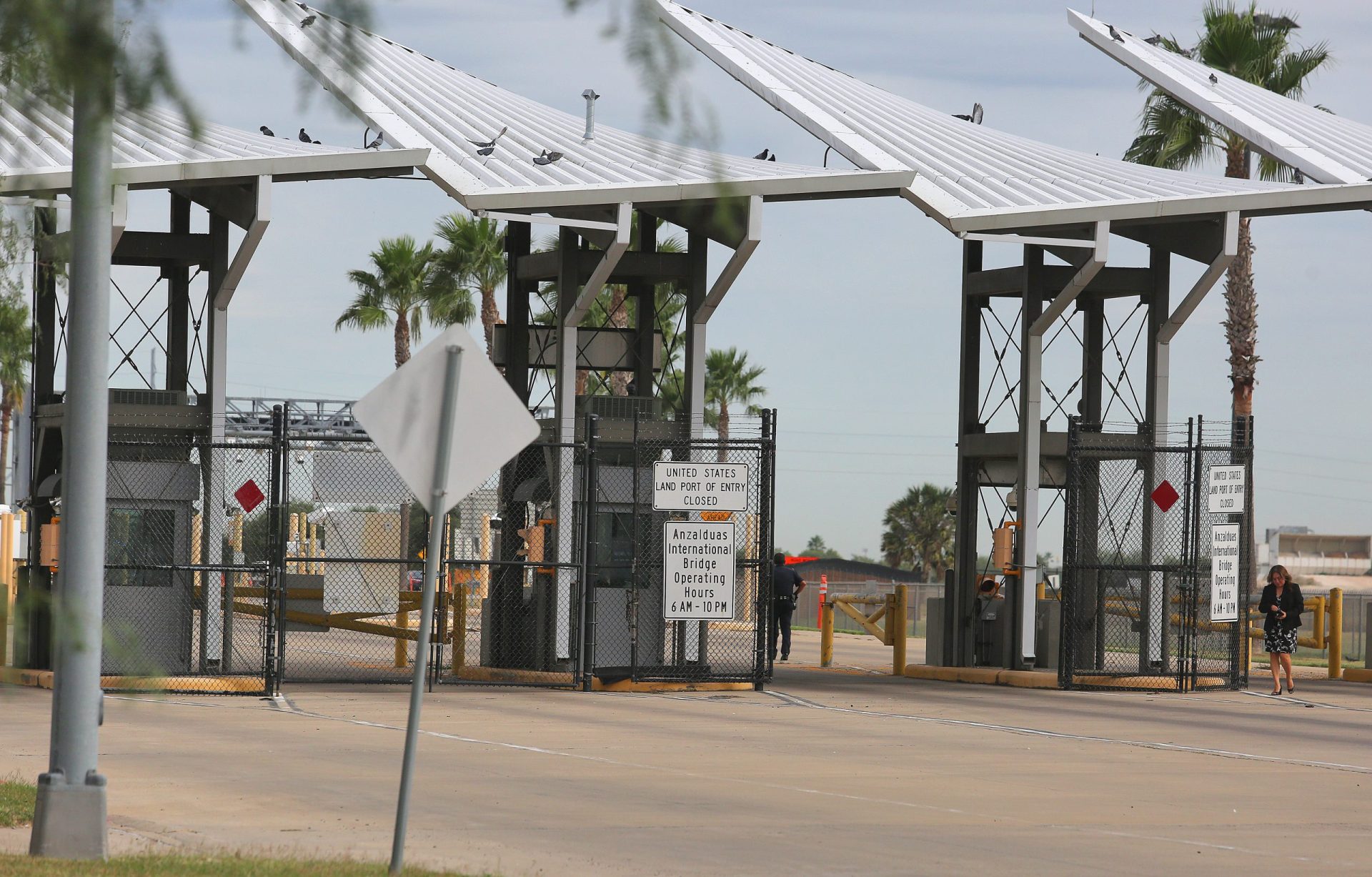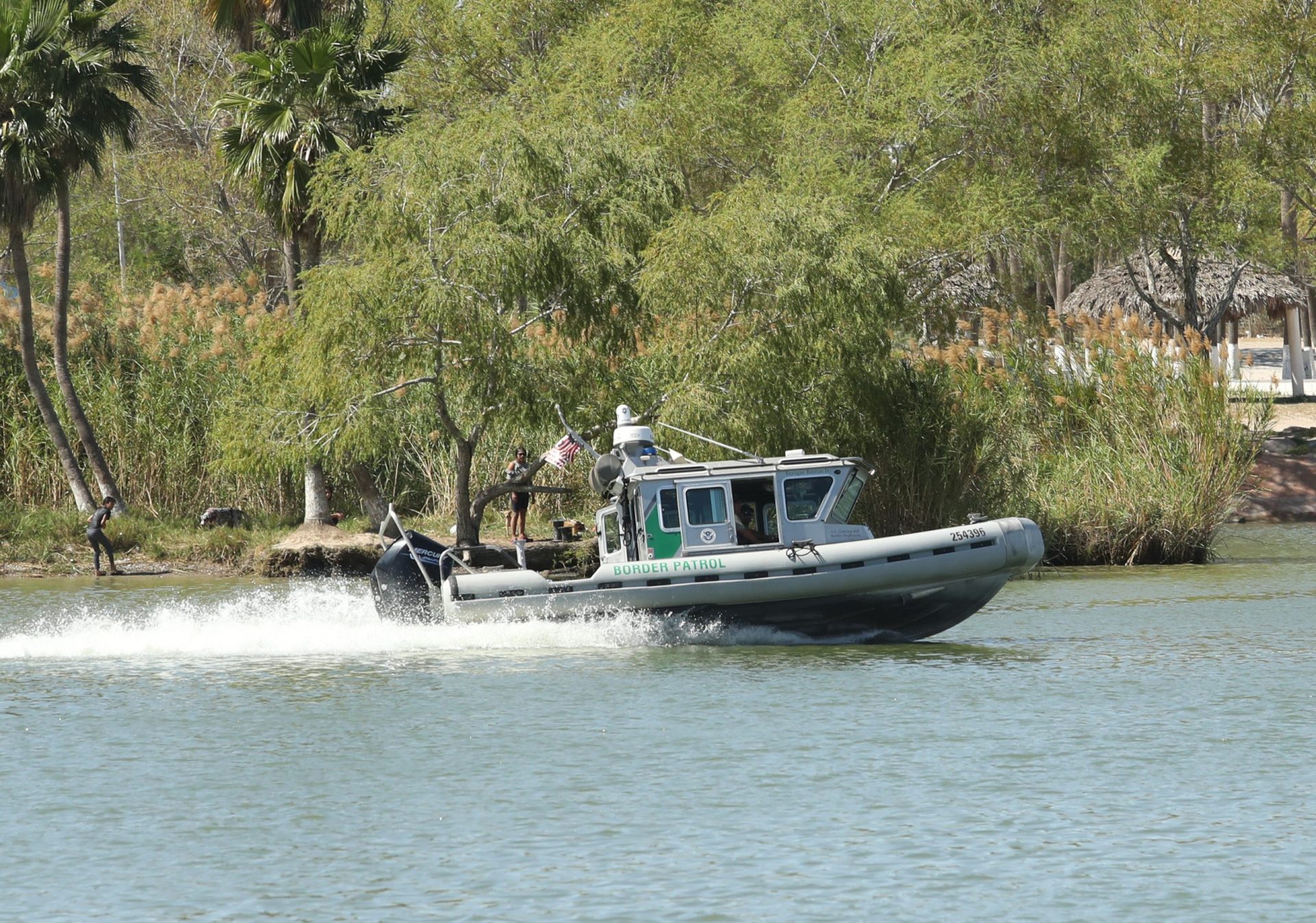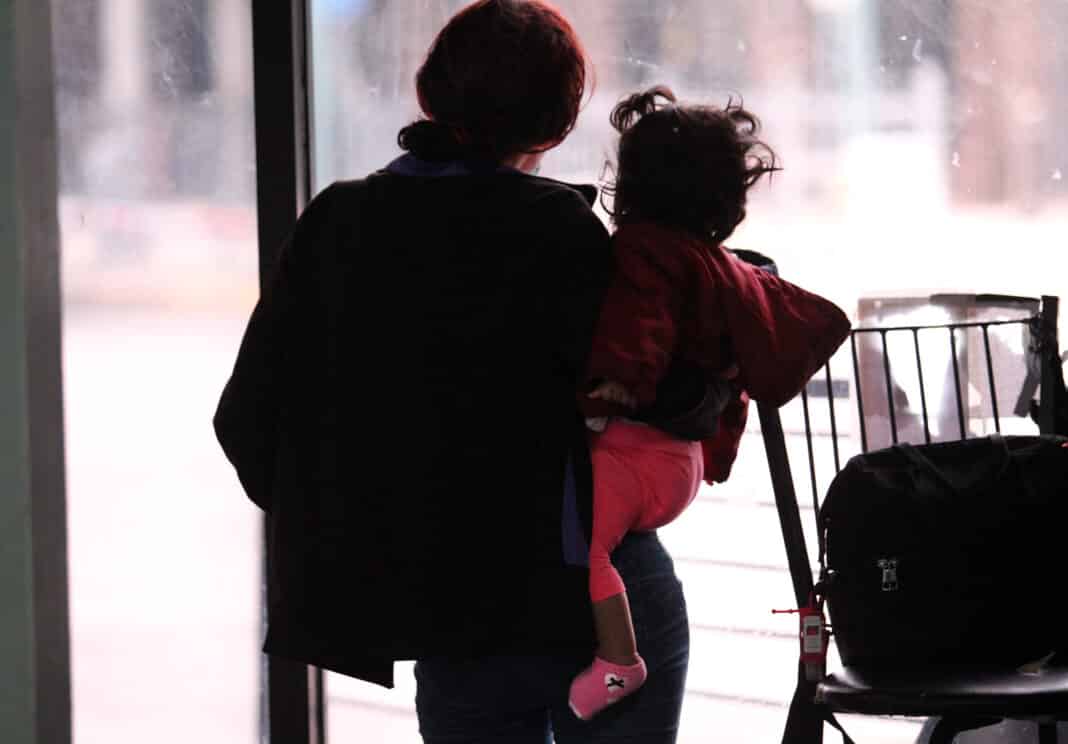|
Only have a minute? Listen instead
Getting your Trinity Audio player ready...
|
McALLEN — It’s a situation not entirely unfamiliar to officials here — an influx of migrants flocking to the southern border on their quest for asylum — though the reason behind it may be different this time around.
In the overnight hours between Thursday and Friday, a COVID-19 era policy known as Title 42 is set to expire and serve as the launching point for what many think will be a rapid increase in the number of Central Amercan migrants seeking entry into the United States.
Officials in McAllen — which has seen migrant surges in 2014, 2019 and 2021 — says the city has prepared as best as it can to respond to the humanitarian need.
“Right now, we’re anticipating that we could see a dramatic increase in numbers of people crossing as we get closer to Thursday, when Title 42 expires,” Jeff Johnston, assistant city manager and deputy emergency management coordinator for the city of McAllen said after a McAllen City Commission Meeting on Tuesday.
The Center for Disease Control and Prevention implemented Title 42 in March 2020 in response to the COVID-19 pandemic, which was then just beginning to sweep across the country.
It put into action a decades-old law that gives federal officials the capability to limit entry into the country during a public health threat, explained Supervisory Agent Brandon Perryman, a spokesperson for the Rio Grande Valley Sector of the U.S. Border Patrol.
“It’s not necessarily an immigration policy. It has nothing to do, really, with immigration at all,” Perryman said.
But when the pandemic struck the country, Title 42 became a de facto tool in immigration enforcement, allowing border agents to expel asylum seekers and other migrants under the guise of safeguarding public health.
Title 42 became the go-to policy used to keep migrants out of the United States, superseding another immigration law, Title 8.
“We could expel people (under Title 42), not arrest and deport. It’s semantics, but it does matter,” Perryman said.

“Title 8 is our actual — it’s our bread and butter,” he said, referring to the powers enumerated under Title 8 via the Immigration and Nationality Act of 1952.
But as the federal public health emergency on COVID-19 expires this month, so, too, does the application of Title 42. The clock runs out on the policy at 11:59 p.m. Thursday.
And that’s when McAllen expects to start seeing the number of migrants increasing.
Over the last decade, Catholic Charities has borne the majority of the responsibility in assisting migrants once they arrive on this side of the Rio Grande.
Approximately 1,000 people can be sheltered temporarily at Catholic Charities’ respite center in downtown McAllen, Johnston said.
He estimated the religious charity can double that capacity through its cooperative relationships with other churches in the area.
“Once they get beyond that 2,000 number, then we may have to step in and assist as needed,” Johnston said.
At that point, McAllen will begin to place them at Anzalduas Park, a Hidalgo County-owned park located in Mission.
There, McAllen has air-conditioned tents and other amenities ready to receive them.
“We’ve got restrooms, showers. They’re fed. We have a medical unit there if they’ve got minor medical issues that we can handle out there,” Johnston said.

Border enforcement agencies are also gearing up to handle the migrant influx, Perryman said.
“We have a pretty robust holding capacity already,” Perryman said, though he declined to divulge any specifics on Border Patrol’s capacity to hold migrants.
During previous spikes, the agency has housed migrants at the Ursula Central Processing Center in McAllen, and at a tent facility south of Donna, among other facilities.
“Fortunately and unfortunately, we’ve already been through quote, unquote ‘surges’ in ‘14 and ‘19 and ‘21. (The) RGV Sector is pretty well-equipped and we’re pretty fast-moving with what we need to do on our side,” Perryman said.
Border Patrol expects to begin again enforcing Title 8 expulsions once Title 42 expires.
Expulsion under Title 8 carries heavier consequences for migrants.
“Title 8 carries possible criminal consequences. Title 8 carries bans from reentering the country legally,” Perryman explained.
To that end, on Wednesday, the Biden administration released an enhanced policy — using Title 8 as a bulwark — that will go into effect as soon as Title 42 expires.
Details of the new policy are outlined in a factsheet published by the Department of Homeland Security on Wednesday.
Brownsville mayor says city ready for end of immigration policy
“DHS and (the) State (Department) are implementing that plan within the constraints of a broken immigration system that Congress has repeatedly failed to fix…” the factsheet states, in part.
Under the enhanced Title 8 policy, migrants subject to expulsion will also be prohibited from seeking permission to reentry the country for five years.
The policy also calls for the opening of 100 “regional processing centers” in countries throughout the Western Hemisphere where asylum seekers will be encouraged to begin the asylum process instead.
The processing centers “will serve to direct migrants to lawful pathways early in their journey and well before reaching the southwest border” of the United States, the factsheet states.
Meanwhile, McAllen officials will continue to try to meet the need as the situation evolves locally.
“Local communities on the border are being dramatically impacted by the fact that the federal government hasn’t found a way to make this work better,” regardless of which political party controls the White House, Johnston said.
The assistant city manager reminded the public that the city has no role in setting federal immigration policy, but instead, has spent the last decade in neutrally addressing humanitarian concerns.
“And we’ve really taken that perspective. Our current mayor, our former mayor both really held that as a good position to take,” he said.
And as tensions over immigration have risen in the national conversation, Johnston further noted that those migrants who have made it to a place like the respite center likely have permission to be in the country.
“Once they have been processed by the Border Patrol, they are given a notice to appear. And then at that point, (they) are legally able to stay in the United States…” Johnston said.
“We just remind people that once they’ve got that document — it’s a document from the federal government — which basically gives them the legal right to be in this country for a temporary period of time,” he added a moment later.




